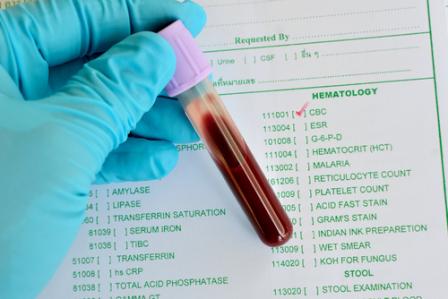Why might I need a complete blood count?
A complete blood count (CBC) is a common blood test that your doctor may recommend for the following reasons:
- To help diagnose some blood cancers, such as leukemia and lymphoma
- Find out if cancer has spread to the bone marrow
- Determine how a person’s body is handling cancer treatment
- To diagnose other, noncancerous conditions
If you are receiving chemotherapy, your doctor will likely monitor your blood cell counts often using CBCs.
What does a complete blood count measure?
A CBC measures the amount of 3 types of cells in your blood:
- White blood cell count. A white blood cell count, also called a leukocyte count, measures the total number of white blood cells in a sample of blood. These cells protect the body from infection by attacking invading bacteria, viruses, and other foreign materials in the body. Some white blood cells can also attack cancer cells.
- White blood cell differential. A white blood cell differential measures the number of each type of white blood cell. There are 5 major types of white blood cells, and each type plays a different role in protecting the body. Your doctor can learn valuable information about your health by measuring the levels of these cells.
- Neutrophils
- Lymphocytes
- Monocytes
- Eosinophils
- Basophils
- Red blood cell count. Red blood cells carry oxygen throughout your body. A red blood cell count, also called an erythrocyte count, measures the number of red blood cells in a sample of blood. There are several ways to measure red blood cells. Two of the most common are:
- Hematocrit (Hct), the percentage of your blood that is made up of red blood cells
- Hemoglobin (Hgb), the amount of the protein in red blood cells that carries oxygen
- Platelet count. A platelet count measures the number of platelets in a sample of blood. Platelets help to stop bleeding by forming blood clots.
The amounts of each of these types of cells have a normal range. Your health care team will note this range on your CBC lab results. A range is used instead of a specific number because a normal amount is different for each person.
What do the results mean?
Your health care team must carefully interpret CBC test results. Keep in mind that many factors, including noncancerous conditions, can lead to results that fall out of the normal range. Ask your doctor to help you understand what your results mean.
- Low white blood cell count. Some cancer treatments, mainly chemotherapy, may cause a decrease in your body's white blood cells. Cancers that affect the blood and bone marrow can also cause a decrease in the count. These types of cancers include leukemia, lymphoma, and multiple myeloma.
- Amounts of different white blood cells. Higher-than-normal numbers of lymphocytes or monocytes can indicate the possibility of certain types of cancers. Some cancers and their treatments may cause neutropenia. Neutropenia is a decrease in the number of neutrophils, which increases the chances of a bacterial infection. At times, your doctor may lower your chemotherapy dose to reduce your chance of developing a low neutrophil count. Your doctor may also recommend medication, such as white blood cell growth factors, to increase your body's production of neutrophils, especially if you develop a fever. Learn more about the use of white blood cell growth factors.
- Low red blood cell count. Some cancer treatments, mainly chemotherapy and radiation therapy, may cause a decrease in red blood cells. This condition is known as anemia. Blood loss, either from surgery or specific cancers, and cancers that directly involve the bone marrow can also cause or worsen anemia. People whose red blood cell count falls too low may need a blood transfusion or medication to help increase it.
- Low platelet count. Some cancer treatments, such as chemotherapy or radiation therapy, may cause a decrease in platelets. Cancers that directly involve the bone marrow can also cause a decrease in platelets. An unusually low number of platelets is called thrombocytopenia. Patients with low platelet levels have a greater risk of serious bleeding or bruising. If your platelet count falls to very low levels, your doctor may recommend platelet transfusions.





ليست هناك تعليقات:
إرسال تعليق
Due to the high number of spammy comments we have decided to initiate comment moderation so that we can maintain our quality standards and make good environment for our visitors. Please leave your comment